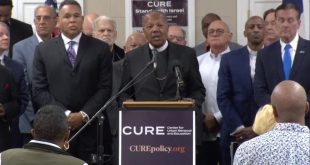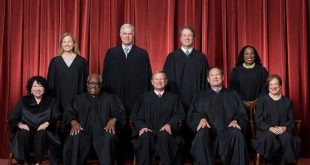 Last week I mentioned a group of people calling themselves evangelical Christians who advocate an idea called marriage equality. I noted that “marriage equality” meant no such thing.
Last week I mentioned a group of people calling themselves evangelical Christians who advocate an idea called marriage equality. I noted that “marriage equality” meant no such thing.
What the Evangelicals for Marriage Equality advocate is two people of the same sex calling themselves married. Actual equality in marriage would allow two or three or four or more people in a “union” to use the term married without regard to present marital status or relatedness. I doubt any Christian — any true Christian — would advocate mothers marrying their sons.
Same-sex marriage proponents object to the incest comparison, of course, but the objections are inconsistent when you consider their rationale for allowing two men to marry each other. If marriage is just about “loving” someone, being free to do what you want, having the same “rights” as heterosexual couples, etc., whatever reason you come up with to deny incest marriages or polygamy can be easily discarded. Besides, isn’t it discrimination to deny three people or two siblings who just want to “love” one another the “right” to marry?
The Southern Baptists have made their views known. Russell Moore, president of the Ethics & Religious Liberty Commission, reiterated that there’s nothing new under the sun.
We’ve seen this before. Every generation seems to have those who try to rewrite the portions of the Bible they are embarrassed about. But if evangelical theology is to keep the evangel, then we must not be ashamed of the Gospel or what it teaches about sexuality. This means holding firm to what the Scripture says and the church has believed about marriage from Pentecost to the present.
The spokesman for the marriage equality group said, “We just want evangelicals to see that it is possible to hold a plethora of beliefs about sexuality and marriage while affirming the rights of LGBTQ men and women to be civilly married under the law.”
As Moore notes, for someone professing Christ to believe that a union of two men can be called a marriage is a theological position. There’s no such thing as being married to a person of the same sex. Accepting the behavior as normal, i.e. good or morally neutral, is to reject what God said about it. He called it an abomination. Advocating so-called marriage equality is to support that which sent Christ to the cross.
Based on [the spokesman’s] comments, “the options for sexuality are virtually limitless,” Lenow said. “Does EME place any restrictions on adultery, fornication, polygamy, polyamory or even incest? If ‘Bible-believing evangelicals’ made an argument for these expressions of sexuality, must biblical standards that prohibit them also be dismissed? There is no limit on the options for expressing sexuality and marriage if EME believes that there are a plethora of beliefs.”
EME, Lenow said, has “adopted a revisionist definition of [marriage] that understands marriage to be nothing more than an intimate emotional relationship between individuals.” He added, “Holding the Bible’s clear instructions regarding marriage and sexuality as true and binding on all people will most certainly not be tolerated within their organization.”
If Christians refuse to uphold what God calls good and what He calls sinful, who will? One of the ways God chose to grow His kingdom is through us as witnesses. How can we be effective witnesses if we accept and celebrate sin?
Daniel Heimbach, senior professor of Christian ethics at Southeastern Seminary, told Baptist Press:
There is no genuine question among Bible-believing Christians over what the Bible teaches about the sinfulness of welcoming same-sex sexual desires and behavior. The Bible is clear, and Bible-believing Christians are clear, about what the Bible teaches…No one who relies on the Word of God over secular culture is wrestling with the ethics of homosexuality.
Photo credit: Elvert Barnes (Creative Commons) – Some Rights Reserved
 CURE News and Clergy Blog News and Commentary for Christians
CURE News and Clergy Blog News and Commentary for Christians



